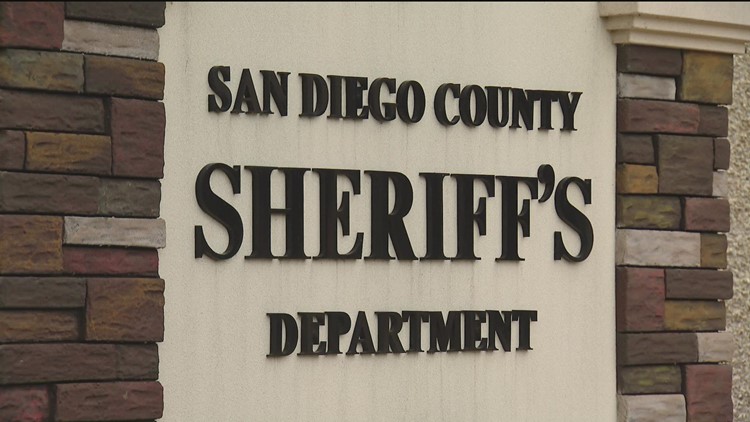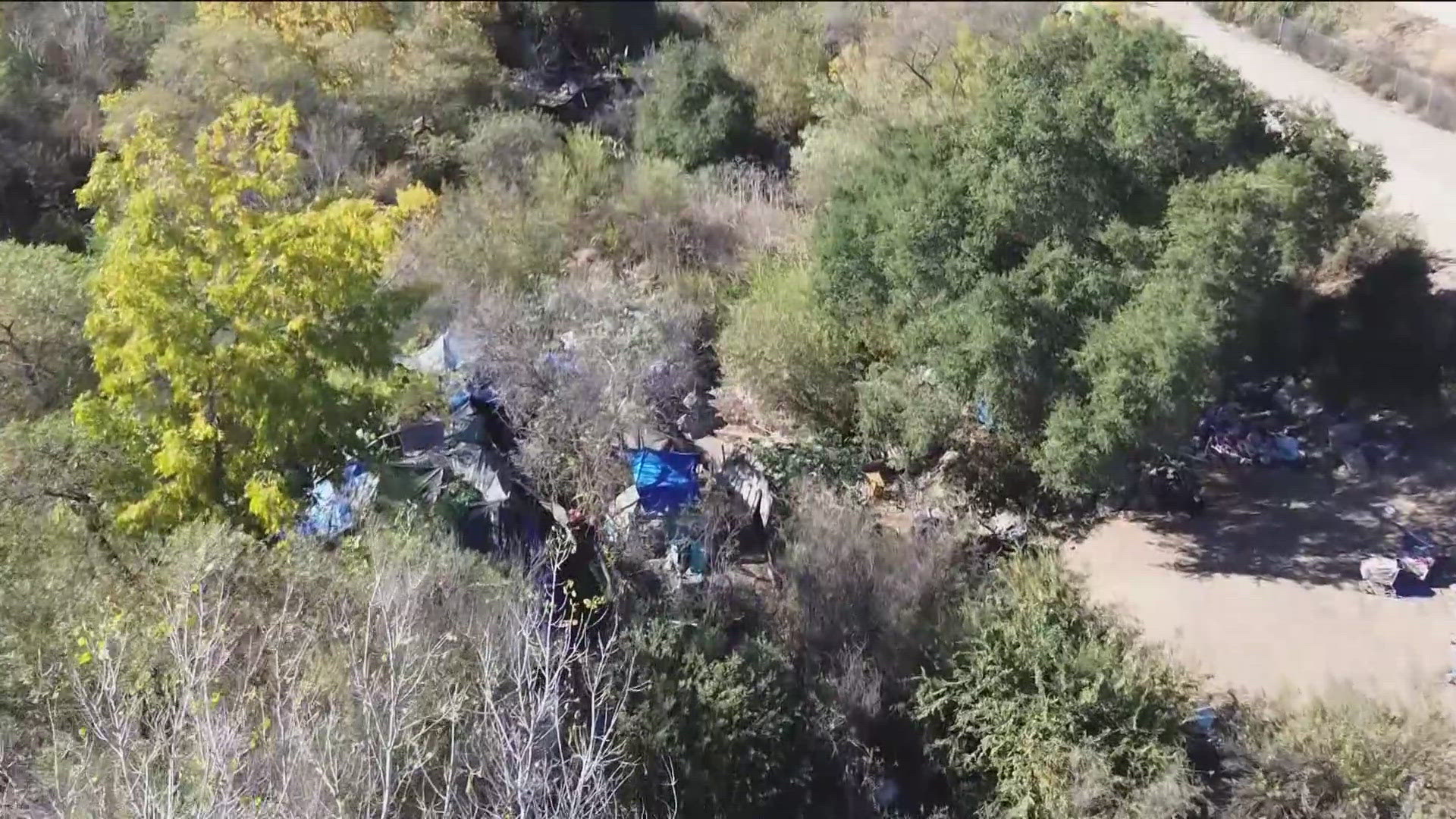SAN DIEGO — An Imperial Beach man who records police stops to prevent police misconduct and expose what he considers is implicit bias in policing is suing the San Diego Sheriff's Department after he says a Sheriff Sergeant assaulted him for filming a traffic stop and then falsely arrested him.
Marcus Boyd, a longtime Imperial Beach resident, and disabled Navy veteran says the deputies and the District Attorney then retaliated against him by filing a felony charge of "Resisting an Executive Officer" - a charge that was later dropped when his trial was set to begin.
For Boyd, the assault and subsequent arrest came, he says, as Sheriff's deputies appeared agitated by him during recent interactions.
The alleged assault also happened just one day before a scheduled meeting with a Lieutenant at the Imperial Beach Station to discuss the growing tensions between deputies and Boyd.
The June 22, 2022 Altercation
On June 22, 2022, Boyd says he was filming an arrest in Imperial Beach from the sidewalk for his YouTube Channel, CopWatch Imperial Beach.
Sheriff's Deputies on the scene during the arrest shouted at Boyd to move away from the scene. Boyd, according to a video that he later posted to his YouTube page, walked to another area while telling the deputies that he did not see any police tape up to mark where he could stand.
That's when a Sheriff Sergeant identified as William Munsch approached Boyd, calling him by name and telling him to move away from the scene.
"Get back on the other side of the truck right now," yelled Munsch.
"Do you have any tape up?" asked Boyd.
Munsch and Boyd began arguing, with Boyd telling Munsch that he was allowed to be ten feet away from the incident, according to a recent court ruling.
Munsch yelled back telling Boyd to keep moving away. As the exchange grew heated, Munsch hit the phone out of Boyd's hand, sending it flying several feet away.
Boyd later posted the altercation to his YouTube channel.
And while Boyd says the assault was disturbing enough, it was what happened after that made him "scared for his life."
"I was shocked. I immediately became afraid," Boyd told CBS 8 in a January 26 interview. "I became contrite and very submissive. Because I knew at that point, I was in danger. So when I picked up my phone,. I asked for a supervisor. That's when he got really mad."
Boyd says he made pleas to other deputies at the scene to intervene as he could tell Sergeant Munsch was becoming angrier and angrier.
"I really became afraid for my life because [Sergeant Munsch] grabbed the back of my head. And I felt him put his fingernails into my scalp. And he pulled my head back. And I could tell he was about to shove it into the car. Luckily, the other deputy came up and took over the arrest," said Boyd.
Boyd says deputies first charged him with obstructing justice, however, by the time he arrived at the substation for booking deputies had changed it to a felony charge of "resisting an executive officer."
For Boyd, the assault and his arrest are exactly why there is a need for his work as a so-called 'copwatcher', to hold those in law enforcement accountable.
CopWatch Imperial Beach
From Michael Brown in Ferguson, Missouri to Freddie Gray in Baltimore to more recently George Floyd's death in Minneapolis, high-profile in-custody deaths have compelled more and more activists to arm themselves with cameras and record local police stops and arrests with the goal of preventing similar unreasonable and excessive force by police.
In response, state and federal law enforcement agencies have objected to citizens recording and live-streaming law enforcement agencies' interactions with the public.
Judges, however, have sided with groups such as the ACLU in classifying the recording of police stops and arrests as a First Amendment right.
For Boyd, his interactions with police as a Black teenager in Fresno and witnessing George Floyd's murder impelled him to begin filming police. Since moving to Imperial Beach in 2003, Boyd says he noticed more people of color were stopped, detained, and ordered to sit on curbs than compared to White people.
"I knew things were happening in Imperial Beach for years," said Boyd. "A former safety officer here told me that Imperial Beach was an undesirable duty station filled with deputies that needed more training, for one reason or another."
Prior to Boyd forming CopWatcher, he served on a city commission tasked with reviewing the San Diego Sheriff's contract for law enforcement services in Imperial Beach.
Boyd said he grew frustrated after many of the commission's recommendations were ignored.
"It was the first time persons of color in Imperial Beach actually were members of an ad hoc committee," recalled Boyd. "But they never put the recommendations on the calendar, and they swept them under the rug, and they were serious recommendations regarding their law enforcement activities. So a year after that, I was frustrated, and that's when I established Imperial Beach "CopWatch."
Boyd says he feels his work watching the police is a needed step to prevent what he feels is widespread bias in policing, something that he experienced first-hand as a young man.
"I remember the curb sitting as a youth. I remember hearing the officer say on the radio, 'I've got two in the gutter. That's how they look at it. Who they put in the gutter is their choice."
As for the felony that Boyd was charged with, he says he appeared in court ready to fight the felony. That day a judge said there was no record of any felony or any charges against him.
"The court provided me a document that said no record found. My attorneys were on the phone with the District Attorney to have them explain but no record was found. Shortly after that, I received a very strange certificate called a 'Certificate of Release' that stated my arrest was in fact not an arrest but a detention only."
The Lawsuit - Boyd v. County of San Diego & Sergeant William Munsch
Lauren Williams and Tim Scott are Boyd's attorneys in a new civil suit that he filed against the Sheriff's Department and Sergeant Munsch.
Scott says the certificate releasing Boyd only shows that the department attempted to walk back from what he says was an illegal arrest.
"That certificate of release does not do squat," said Scott. "If that was an illegal arrest, it remains an illegal arrest. If anything, that certificate is a bit of an admission of liability, in our view, trying to walk back what they know they did wrong."
Attorney Williams adds that the arrest was only one mistake that deputies made that night. The assault, as well as trying to deprive Boyd of his First Amendment right of recording that night are two other issues that the county and Sheriff's Department must answer.
"Mr. Boyd had a right to be there on a sidewalk," said Williams. "He had a right to film what was going on. And, let's not forget, Mr. Boyd was struck by an officer. The officer used physical violence against him. There was absolutely no reason for doing that. And, you know, luckily, Mr. Boyd made sure that was caught on camera."
CBS 8 reached out to the Sheriff's Department and the County of San Diego for comment on the lawsuit.
Unable to comment on pending litigation, a Sheriff's Department spokesperson confirmed that Sergeant Munsch still works for the department.



